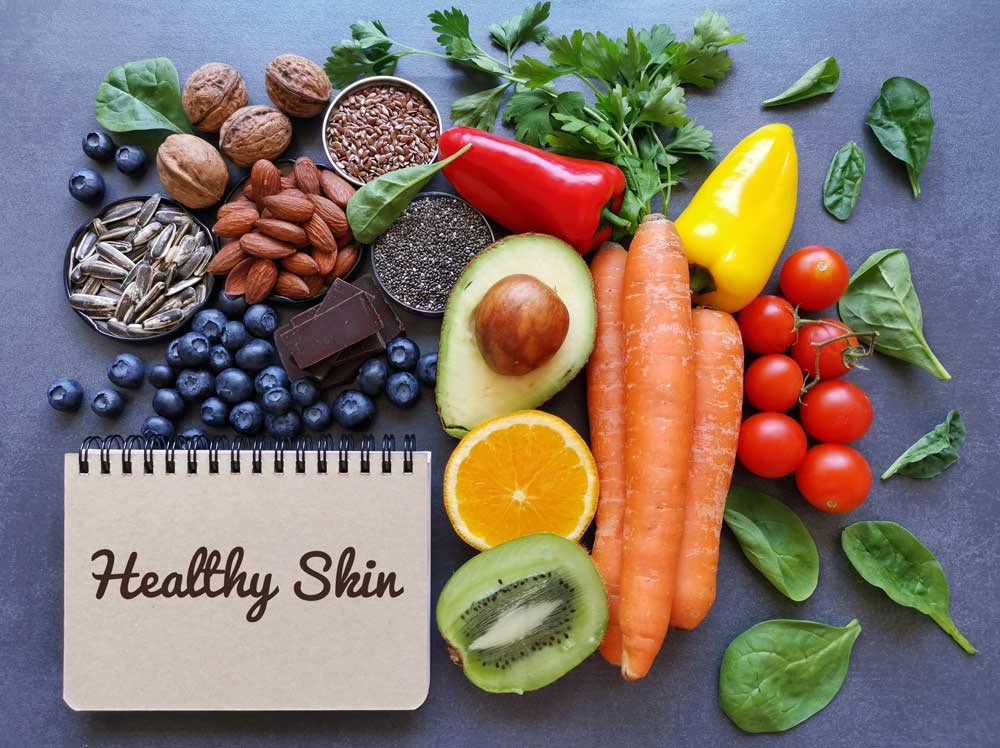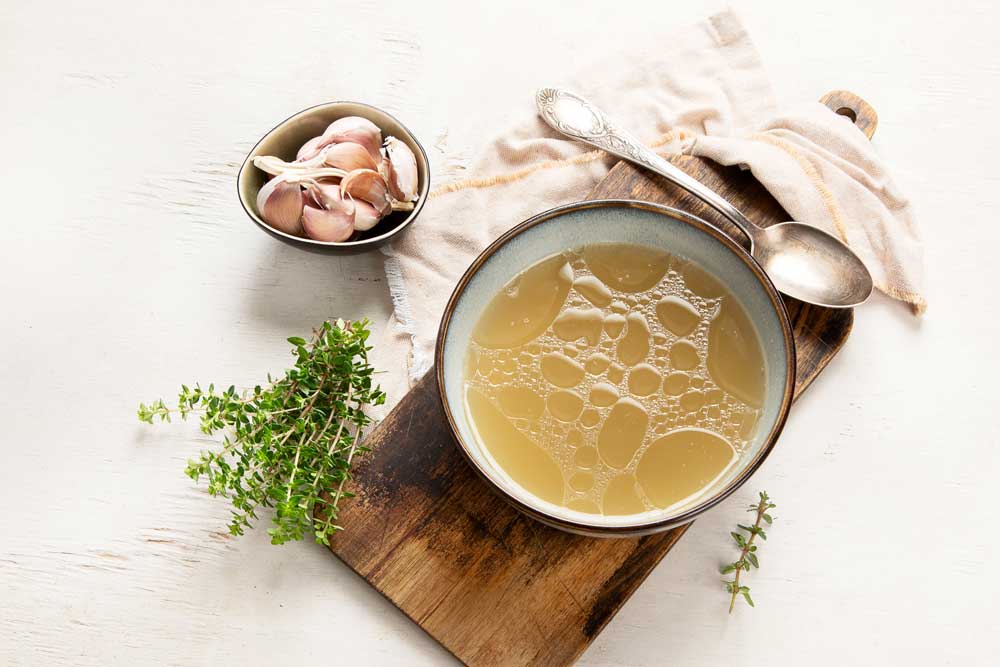Collagen is a fundamental protein that acts as the primary structural component of connective tissues throughout the body. It constitutes about 30 per cent of the total protein in the human body and is found predominantly in the skin, bones, tendons, ligaments, and cartilage. Collagen's unique structure, composed of amino acid chains arranged in a triple helix formation, gives it the strength and flexibility required to support and bind various tissues. This structural integrity is crucial for maintaining skin elasticity, providing support to joints and tendons, and ensuring the proper function of organs and tissues.
As we age, the natural production of collagen in the body begins to wane, resulting in a range of visible and physical changes. Reduced collagen levels contribute to common signs of aging such as wrinkles, sagging skin, and weakened joints. This decline in collagen also affects bone density and muscle mass, impacting overall mobility and strength. To counteract these effects, incorporating collagen rich foods into one's diet can help replenish and support the body’s collagen levels, promoting healthier skin, more resilient joints, and stronger connective tissues.
Benefits of Collagen
Incorporating collagen rich foods into your diet can significantly enhance your overall health and well-being. One of the primary benefits is the improvement in skin elasticity and hydration. Collagen helps to maintain the skin's structure, ensuring it remains firm and supple. By supporting the dermal matrix and promoting the production of skin cells, collagen can reduce the appearance of fine lines and wrinkles, leading to a more youthful complexion. Additionally, collagen aids in the repair of damaged skin and can improve hydration levels, resulting in a healthier and more radiant appearance.
Beyond skin health, collagen plays a crucial role in joint and bone health. It is a key component of cartilage, the tissue that cushions joint and facilitates smooth movement. Adequate collagen levels help to maintain cartilage integrity, reducing the risk of joint pain and stiffness associated with conditions like osteoarthritis. Collagen also supports bone strength by providing a structural framework for bone mineralisation, which is vital for maintaining bone density and reducing fracture risk. Furthermore, collagen contributes to muscle mass by providing essential amino acids that support muscle repair and growth. By boosting collagen through diet, you can enhance both your physical performance and your overall vitality.
10 Top Collagen Rich Foods
1. Bone Broth
Bone broth is a powerhouse of collagen, derived from simmering animal bones and connective tissues. This slow-cooked broth is rich in collagen peptides, which are easily absorbed by the body. Consuming bone broth regularly can enhance skin elasticity, support joint health, and improve digestion. Try sipping it on its own or using it as a base for soups and stews.
2. Chicken
Chicken, especially the skin and connective tissues, is a great source of collagen. It contains a high concentration of amino acids like proline and glycine, which are crucial for collagen synthesis. Incorporate chicken into your meals by grilling, baking, or adding it to salads and soups to reap the benefits of this collagen rich food.
3. Fish
Fish, particularly the skin and bones, is another excellent source of collagen. The collagen found in fish is easily digestible and beneficial for skin health. Fish like salmon, mackerel and sardines are rich in omega-3 fatty acids, which can further enhance the skin’s elasticity and hydration. Enjoy fish as a main dish or in salads for a delicious way to boost your collagen intake.
4. Egg Whites
Egg whites are packed with proline, an amino acid essential for collagen production. They are low in calories and rich in protein, making them an ideal addition to a balanced diet. Add egg whites to your morning omelets, bake them into muffins, or use them in smoothies to increase your collagen intake.

5. Citrus Fruits
Citrus fruits like oranges, lemons, and grapefruits are rich in vitamin C, which is crucial for collagen synthesis. Vitamin C helps stabilise and form collagen molecules, making it an essential nutrient for maintaining healthy skin and connective tissues. Enjoy citrus fruits fresh, in juices, or as part of a fruit salad to boost your collagen production.
6. Legumes
Legumes, including beans, lentils, and chickpeas, are a great source of plant-based protein and contain amino acids necessary for collagen production. They also provide a wealth of vitamins and minerals that support overall health. Incorporate legumes into your diet through soups, stews, salads, or as a meat substitute in various dishes.
7. Peppers
Bell peppers are not only vibrant and flavorful but also rich in vitamin C, which supports collagen production. The vitamin C content in peppers aids in collagen synthesis and protects against oxidative damage. Add peppers to salads, stir-fries, or as a crunchy snack to enjoy their collagen-boosting benefits.
8. Berries
Berries, such as strawberries, blueberries, and raspberries, are high in antioxidants and vitamin C. These nutrients help protect the skin from oxidative stress and support collagen production. Include berries in your smoothies, yogurt, or eat them fresh to enjoy their skin-enhancing properties.
9. Leafy Green Vegetables
Leafy greens like spinach, kale and Swiss chard are packed with nutrients that support collagen synthesis. They contain vitamins A and C, as well as other antioxidants that help protect and repair skin tissues. Incorporate leafy greens into your meals by adding them to salads, smoothies, or as a side dish.
10. Tomatoes
Tomatoes are rich in lycopene, an antioxidant that helps protect skin from UV damage and supports collagen production. They also contain vitamin C, which is essential for collagen synthesis. Enjoy tomatoes in sauces, salads, or soups to enhance your collagen intake and support healthy skin.

Easy Ways to Add Collagen Rich Foods to Your Daily Diet
Incorporating collagen rich foods into your daily diet can be simple and enjoyable. Start by adding bone broth to your weekly meal prep and use it as a base for soups and stews. Opt for chicken and fish as protein sources in your main dishes and experiment with different cooking methods to keep meals exciting. Incorporate egg whites into your breakfast routine, and add citrus fruits and berries to smoothies or yogurt. Include legumes in your salads and sides, and make sure to add peppers, leafy greens, and tomatoes to various dishes throughout the week. By making these small changes, you can easily boost your collagen intake and enjoy its numerous health benefits.
Conclusion
Maintaining healthy collagen levels is essential for overall well-being, including skin health, joint function, and bone strength. By incorporating a variety of collagen rich foods into your diet, you can naturally support your body’s collagen production and enjoy a range of health benefits. From bone broth and chicken to citrus fruits and leafy greens, these foods offer a delicious and effective way to enhance your collagen intake. Start integrating these options into your meals today and take a step towards healthier, more resilient body systems.
Furthermore, a balanced diet that includes these collagen-boosting foods can help counteract the natural aging process, providing long-term support for both appearance and physical function. By making mindful dietary choices, you not only improve your current health but also lay the foundation for a vibrant and active future. Embrace these nutritional strategies and witness the positive impact they can have on your overall health and vitality.
FAQs
What is the best way to consume collagen rich foods?
Eating a balanced diet that includes a variety of collagen rich foods, such as bone broth, chicken, fish, and citrus fruits, is the best way to boost collagen levels. Incorporate these foods into your regular meals and snacks for optimal benefits.
How often should I eat collagen rich foods?
There is no specific frequency required, but aiming to include collagen rich foods in your diet several times a week can help maintain healthy collagen levels. Consistency is key for achieving long-term benefits.
Can I get enough collagen from plant-based sources?
While plant-based sources may not contain collagen directly, many provide essential nutrients and amino acids that support collagen production in the body. Including a variety of plant-based foods such as legumes and leafy greens can contribute to overall collagen health.
Are collagen supplements as effective as eating collagen rich foods?
Collagen supplements can be effective for boosting collagen levels, but consuming collagen rich foods provides additional nutrients and health benefits. Combining both options can be a comprehensive approach to supporting collagen production.
Can I increase collagen production with lifestyle changes?
Yes, lifestyle changes such as staying hydrated, avoiding excessive sun exposure, and maintaining a healthy diet rich in vitamins and minerals can support collagen production and overall skin health.